Bridge to Freedom (1965)
A decade of lessons is applied in the climactic and bloody march from Selma to Montgomery, Alabama. A major victory is won when the federal Voting Rights Bill passes, but civil rights leaders know they have new challenges ahead.
Episodes
-

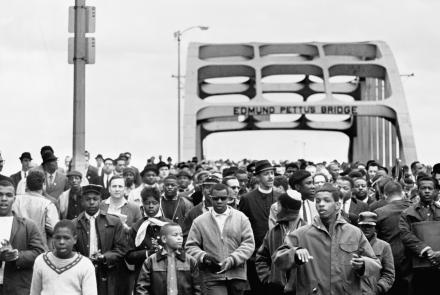
Bridge to Freedom (1965)
S1 E6 - 56m 15s
A decade of lessons is applied in the climactic and bloody march from Selma to Montgomery, Alabama. A major victory is won when the federal Voting Rights Bill passes, but civil rights leaders know they have new challenges ahead.
-

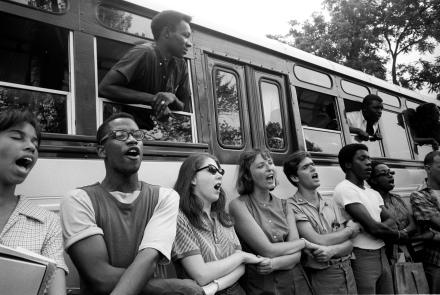
Mississippi - Is This America? (1963-1964)
S1 E5 - 56m 15s
Mississippi’s grassroots Civil Rights Movement becomes an American concern when college students travel south to help register black voters and three of them are murdered. The Mississippi Freedom Democratic Party challenges the regular Mississippi delegation at the Democratic Convention in Atlantic City.
-

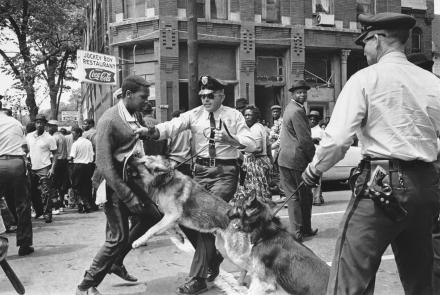
No Easy Walk (1961-1963)
S1 E4 - 56m 15s
The Civil Rights Movement discovers the power of mass demonstrations as the Reverend Martin Luther King, Jr. emerges as its most visible leader. Some demonstrations succeed; others fail. But the triumphant March on Washington, D.C., under King’s leadership shows mounting national support for civil rights. President John F. Kennedy proposes the Civil Rights Act.
-

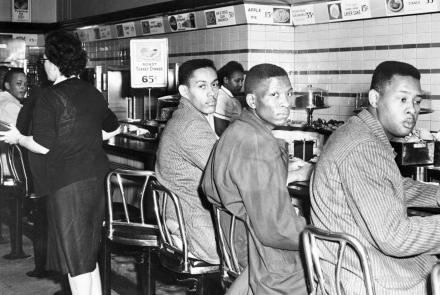
Ain't Scared of Your Jails (1960-1961)
S1 E3 - 56m 14s
Black college students take a leadership role in the Civil Rights Movement as lunch counter sit-ins spread across the South. Freedom Riders also try to desegregate interstate buses, but they are brutally attacked as they travel.
-

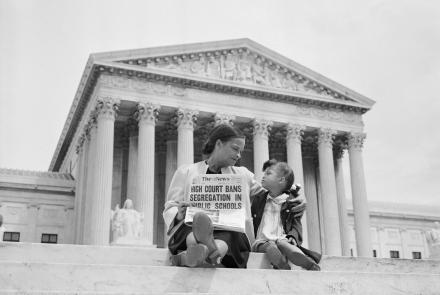
Fighting Back (1957–1962)
S1 E2 - 56m 14s
States’ rights, loyalists, and federal authorities collide in the 1957 battle to integrate Little Rock’s Central High School, and again in James Meredith’s 1962 challenge to segregation at the University of Mississippi. Both times, a Southern governor squares off with a US president, violence erupts - and integration is carried out.
-

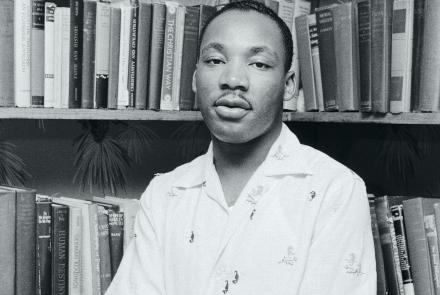
Awakenings (1954-1956)
S1 E1 - 56m 15s
Individual acts of courage inspire Black Southerners to fight for their rights: Mose Wright testifies against the white men who murdered young Emmett Till, and Rosa Parks refuses to give up her bus seat to a white man in Montgomery, Alabama.
Extras + Features
-
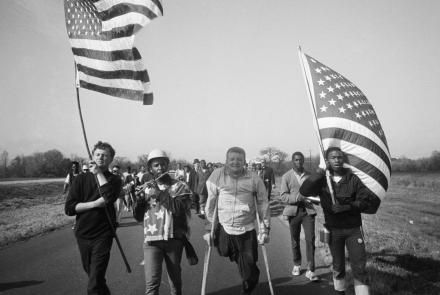
Bridge to Freedom (1965) | Promo
S1 E6 - 30s
A decade of lessons is applied in the climactic and bloody march from Selma to Montgomery, Alabama. A major victory is won when the federal Voting Rights Bill passes, but civil rights leaders know they have new challenges ahead.
-
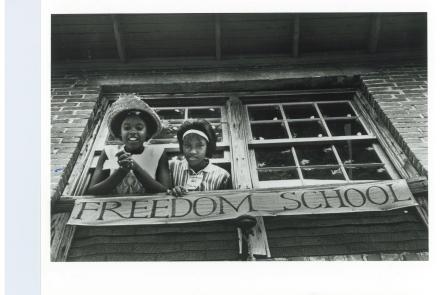
Mississippi - Is This America? (1963-1964) | Promo
S1 E5 - 30s
Mississippi’s grassroots Civil Rights Movement becomes an American concern when college students travel south to help register black voters and three of them are murdered. The Mississippi Freedom Democratic Party challenges the regular Mississippi delegation at the Democratic Convention in Atlantic City.
-
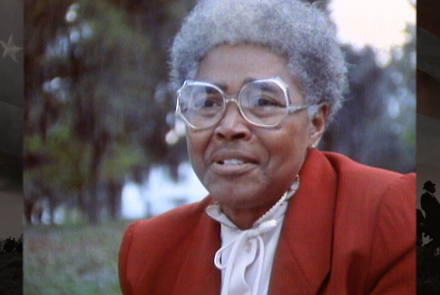
Mississippi-Is This America? (1963-1964) | A New Party
S1 E5 - 52s
Victoria Gray Adams, one of the founding members of the Mississippi Freedom Democratic Party, explains what the party's goals are - one being Black representation and recognition at the state and national level. From Eyes on the Prize: Mississippi - Is This America? (1963-1964).
-
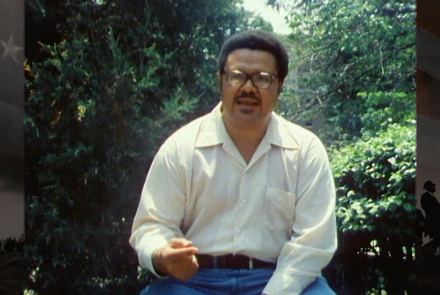
Mississippi-Is This America? (1963-1964) | Register to Vote
S1 E5 - 42s
Lawrence Guyot, founding chairman of the Mississippi Freedom Democratic Party, expresses frustration over the voter registration process for Black Americans in Mississippi. From Eyes on the Prize: Mississippi - Is This America? (1963-1964).
-
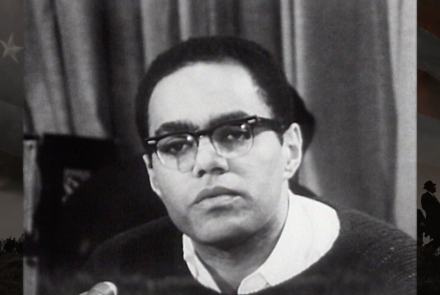
Mississippi - Is This America? (1963-1964) | Freedom Summer
S1 E5 - 1m 10s
In 1964, activist Bob Moses announces Freedom Summer in Mississippi. The project would send volunteers, mostly white, to join Black residents in the state to assist with education, community activities like voter registration. From Eyes on the Prize: Mississippi - Is This America? (1963-1964).
-
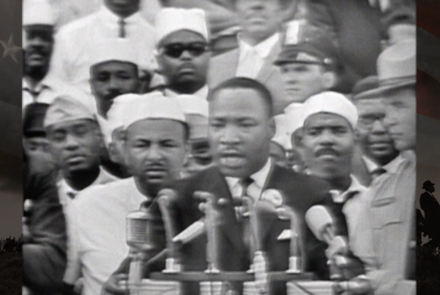
No Easy Walk (1961-1963) | March on Washington: MLK Jr.
S1 E4 - 1m 30s
An extended excerpt of Dr. Martin Luther King Jr.'s “I Have a Dream” at the March on Washington for Jobs and Freedom in 1963. From Eyes on the Prize: No Easy Walk (1961-1963).
-
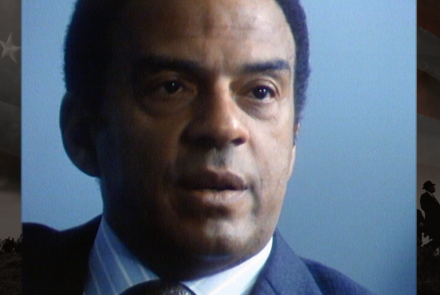
No Easy Walk (1961-1963) | MLK Jr. in Birmingham
S1 E4 - 1m 44s
Reverend Andrew Young tells the story of the moment that Dr. Martin Luther King Jr. showed his “true leadership.” It began in Birmingham, Alabama where King, the Southern Christian Leadership Conference (SCLDC) and the Alabama Christian Movement for Human Rights led a campaign of protests. From Eyes on the Prize: No Easy Walk (1961-1963).
-
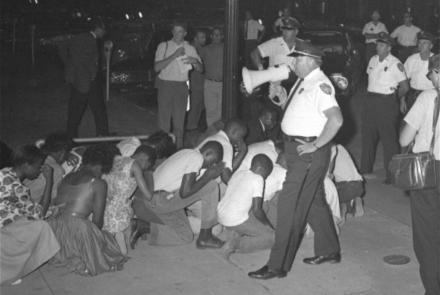
No Easy Walk (1961-1963) | Promo
S1 E4 - 30s
The Civil Rights Movement discovers the power of mass demonstrations as the Reverend Martin Luther King, Jr. emerges as its most visible leader. Some demonstrations succeed; others fail. But the triumphant March on Washington, D.C., under King’s leadership shows mounting national support for civil rights. President John F. Kennedy proposes the Civil Rights Act.
-
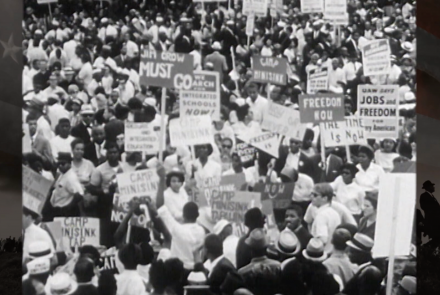
No Easy Walk (1961-1963) | March on Washington: John Lewis
S1 E4 - 30s
"We want our freedom and we want it now." An excerpt of John Lewis's speech at the March on Washington for Jobs and Freedom in 1963. From Eyes on the Prize: No Easy Walk (1961-1963).
-
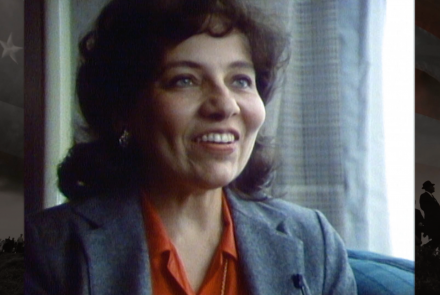
Ain't Scared of Your Jails (1960-1961) | Nashville Sit-Ins
S1 E3 - 1m 17s
In 1960, Fisk student and activist Diane Nash recounts the lunch counter sit-ins in Nashville, Tennessee. From Eyes on the Prize: Ain't Scared of Your Jails (1960-1961).
-
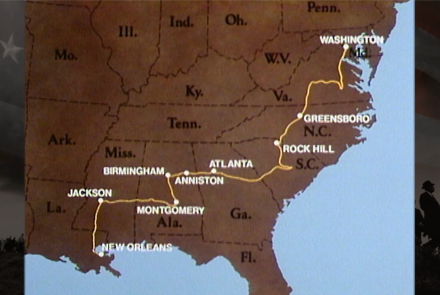
Ain't Scared of Your Jails (1960-1961) | Freedom Riders
S1 E3 - 1m 3s
James Farmer, the director of the Congress of Racial Equality (CORE), explains the step-by-step procedures for the Freedom Riders from Washington, D.C. through America's South to New Orleans, Louisiana in 1961. From Eyes on the Prize: Ain't Scared of Your Jails (1960-1961).
-
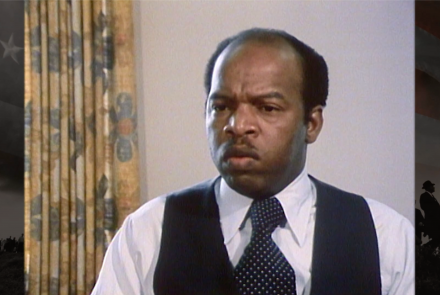
Ain't Scared of Your Jails (1960-1961) | John Lewis
S1 E3 - 1m 39s
John Lewis speaks about the planned protection detail for the Freedom Riders in Alabama, and what actually happened along the way from Birmingham to their arrival in Montgomery. From Eyes on the Prize: Ain't Scared of Your Jails (1960-1961).
Schedule
WETA Passport
Stream tens of thousands of hours of your PBS and local favorites with WETA Passport whenever and wherever you want. Catch up on a single episode or binge-watch full seasons before they air on TV.
Similar Shows

Historian's Take
History

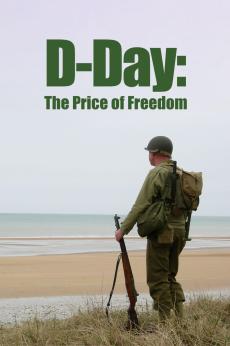
D-Day: The Price of Freedom
History


The Seabees on Iwo Jima
History
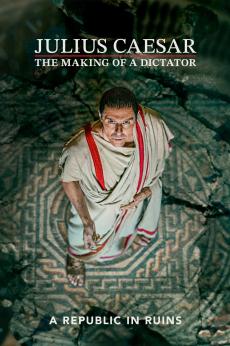

Her Story, Her War: World War II
History

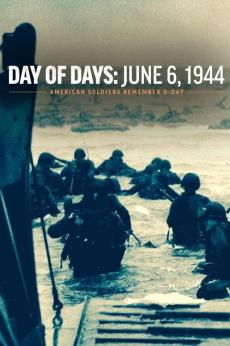
Day of Days: June 6, 1944
History
